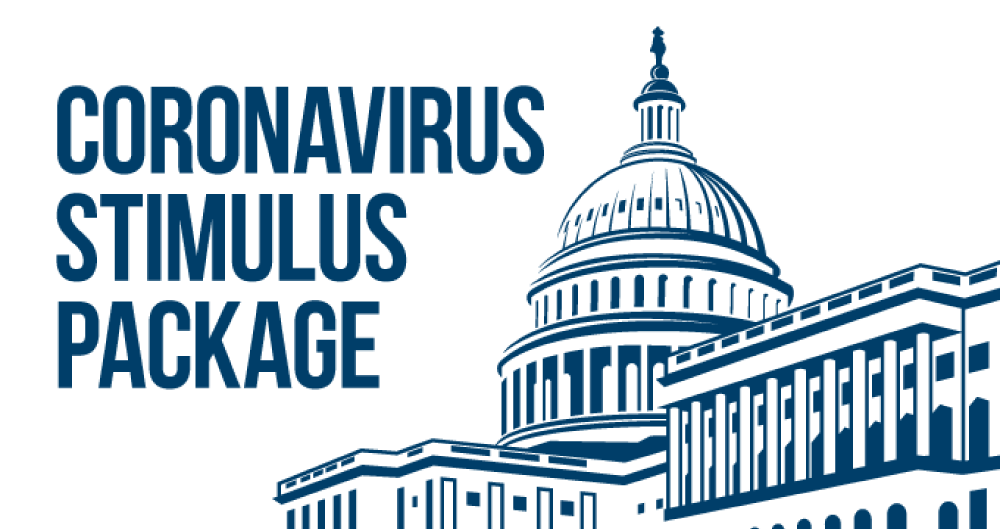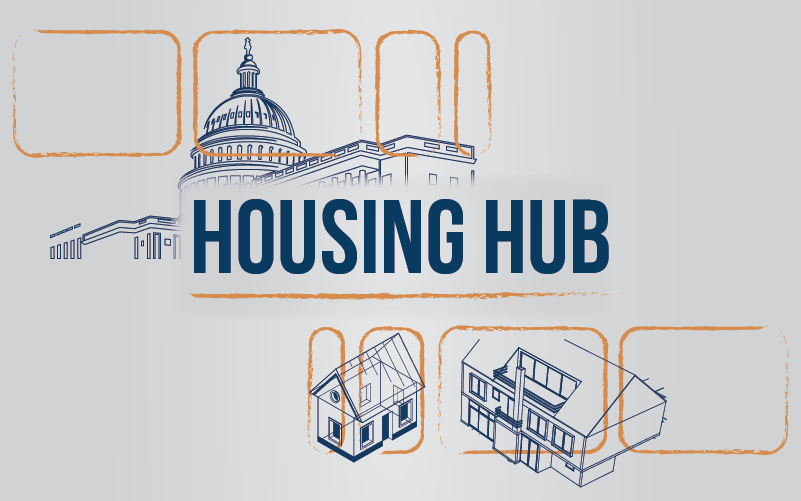NAC Blog: NAHREP and a historic stimulus bill
Celebrating NAHREP familia, cultura, politics, and grassroots action
Que onda mi gente?!
Wow. This week was a whirlwind. So much has happened and continues to happen as our country reshuffles itself into a new reality.
I’ve appreciated all of your stories, input, comments on social media, reposts and private messages. Our community is so powerful, resilient, and resourceful, and we have shown the face of that spirit in full force this past week.
At NAHREP, we’re spending every waking moment fighting, not only for all of you so that you can continue to keep your businesses afloat, but also for Latino families nationwide who are struggling to make mortgage payments and are struggling to make ends meet in these unprecedented times.

NAHREP advocacy at work over the past week:
On Friday, March 20, 2020 NAHREP sent a letter to Congress and the Administration urging them to include our policy priorities in the upcoming Coronavirus Stimulus Package.
The letter includes a list of NAHREP policy priorities that we wanted to make sure were considered in any stimulus package:
- Real estate sales and corresponding services to be deemed essential services to the economy.
- Remove red tape associated with remote closings.
- Suspend all negative consumer credit reporting during the pandemic.
- Institute a foreclosure moratorium.
- Provide a minimum of six months of forbearance on mortgage loans.
- Require forbearance for mortgages to include rental properties.
- Remove any fees, penalties, or accrued interest for the length of the forbearance.
- Provide at least $2,000 per month stimulus payments for all adults and $1,000 per child.
- Ensure supplier diversity by guaranteeing Latino small business owners will have an equitable share of any government and corporate contracting opportunities that emerge from this crisis.
Additionally, NAHREP made an extra push urging the inclusion of remote notarization in the stimulus package, by writing this letter in support of the SECURE Notarization Act of 2020.
Thank you to everyone who shared stories telling us how remote notarization is one way the real estate industry can continue to operate during these times of coronavirus shelter in place policies.
So here’s what went down in Congress this week:
Over the weekend, the Senate stayed in session and worked around the clock to negotiate a stimulus package for businesses and families in the wake of the coronavirus. At the end of the weekend, no deal was made. The Senate and U.S House of Representative leaders continued to convene through the early part of the week, reaching an agreement late Tuesday night on a bill titled the “Coronavirus Aid, Relief, and Economic Security Act” or the “CARES Act”.
The Senate passed the bill last night, with the full U.S. House of Representatives now taking up the measure. Barring something unexpected, the bill is expected to be sent to the President for signature soon.
A closer look at what is in the bill as it relates to our priorities:
The CARES Act and homeownership assistance
Protections against Negative Credit Reporting during COVID-19: If creditors provide a forbearance or give consumers a modified payment schedule on accounts such as credit cards or student loans, there will be no negative reporting to the credit reporting bureau as long as the consumer has followed the terms of the modified agreement. Creditors are not obligated to provide a modified payment schedule or forbearance on any consumer account, with the exception of federally-backed mortgages outlined below.
Right to Forbearance: Consumers with federally-backed mortgages (FHA, USDA, VA and conventional loans) may request a 60-day forbearance on their loan with an option of up to four additional 30-day periods thereafter. No penalties, fees, or additional accrued interest will be applied during the forbearance period. If you request a forbearance from your servicer you have to make the request before the end of the national emergency declaration or before December 31, 2020, whichever comes first.
Foreclosure Moratorium: Foreclosures are banned on any federally-backed mortgages for 60 days beginning March 18, 2020.
Forbearance of Residential Mortgage Loan Payments for Multifamily Properties with Federally Backed Loans. Consumers with federally-backed mortgages for multifamily properties of 5 units or more may request a 30-day forbearance with an option of up to two additional 30-day periods thereafter. Borrowers receiving forbearance may not evict or charge late fees to tenants for the duration of the forbearance period. You must request a forbearance from your servicer and the request must be made before the end of the national emergency declaration or before December 31, 2020, whichever comes first.
The CARES Act and small businesses
Loan availability: NAHREP members who own small businesses – businesses with fewer than 500 employees and other restrictions – can apply for loans to help them with operating costs through the duration of the crisis or by June 30, 2020.
Loan amounts tied to operating costs: The money can be used for payroll costs, such as employee salaries, paid sick or medical leave, insurance premiums, mortgage or rent.
Loan forgiveness: Borrowers will be eligible for loan forgiveness for funds utilized in the 8-week period following the loan origination date for payroll costs, interest payments on a mortgage, rent on a lease and utility payments. The mortgage, lease or utility must have been preexisting prior to February 15, 2020 to qualify.
Loan forgiveness is aimed at preventing layoffs: The amount forgiven will be reduced proportionally for employee layoffs or wage reductions. If a company has already laid off workers, they have the option to rehire those workers without facing a penalty. Any loan amounts not forgiven at the end of one year is carried forward as an ongoing loan with terms of a maximum of 10 years and at a maximum interest rate of 4 percent.
What doesn’t qualify for forgiveness:
- Amount forgiven cannot exceed the principal amount of the loan.
- Payroll costs for employees earning above $100,000 in wages.
- Payroll costs that exceed prior year costs of the same time period.
- Mortgage pre-payment or mortgage principal payments.
Direct cash payments
Up to $1,200 rebate per person ($2,400 for couples) plus $500 per child: The full tax rebate is available for workers who earn up to $75,000 ($150,000 if married). This includes those who have no income, as well as those whose income comes entirely from non-taxable programs, such as social security benefits. For earners over the income threshold, the amount is completely phased-out for those making more than $99,000, ($198,000 for couples). The income qualification will be based on the 2019 tax filing if already filed, or 2018 if not already filed.
Expanded Unemployment Insurance:
Unemployment Insurance is extended to those not traditionally eligible for unemployment benefits such as, self-employed, independent contractors, those with limited work history, and others, who are unable to work as a direct result of the coronavirus public health emergency.
Next Steps:
While not everything that we advocated for was included in this legislation, there is a lot in it that many of our NAHREP members and communities can start fully utilizing as we work to stay afloat. It will be important to educate all of our members and the community on how to access these programs; and, with your help, we will continue to advocate and push for more relief going forward.
- Keep working with Congress: This bill was the 3rd coronavirus stimulus bill. There will likely be additional actions taken. We will keep pushing to ensure that our issues continue to be included in subsequent bills. And we will call on all of you to help us advocate.
- Ensure that real estate is deemed essential business: This decision has been left to the states to decide. We will work with all of you to advocate so that you can continue doing business in your state.
- Removing all red tape around remote closings: There is pending legislation that may be voted on in the coming weeks to ensure that RON remote notarization is allowed in every state. So far there are roughly 25 states that have adopted RON systems. We will continue to advocate state specific efforts, particularly in states where we have members.
This is why public policy and advocacy matters, mi gente. I’ll be doing videos soon to offer explanations and updates on everything going on. Please, please keep sending me what you’re seeing in the market to nlimon@nahrep.org. We couldn’t do this without you.
Gracias, NAHREP familia. Together we can move mountains!

About Noerena Limón
Noerena Limón is NAHREP’s Executive Vice President of Public Policy and Industry Relations. Noerena heads the organization’s policy and advocacy efforts on issues ranging from homeownership, housing inventory, credit access and immigration.
Prior to joining NAHREP, Noerena spent six years at the Consumer Financial Protection Bureau (CFPB) and served as a political appointee under President Obama in the White House Office of Political Affairs.


